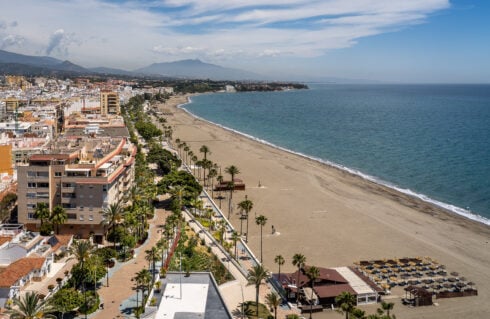IN the last column, we looked at the things you need to know before buying a plot to build on in Spain. This time, we’ll review the process, and costs, of going from having a piece of land to the plans for your new home.
We continued our conversation with local architect and developer, Alejandro Giménez Ferrer, about how to get a building project off the ground, the people involved, and what you should expect to pay them.
The first thing needed to comply with Spanish law is a geotechnical report, to determine the correct type of foundations for your build. Specialist geotechnical engineering companies, which must be registered providers, produce this kind of report. This normally takes a week and costs 1,000-3,000€.
Depending on the plot, you may want a topographic report to see how your land lies. Alejandro particularly recommends this for plots on a slope or with difficult terrain. This is done by a topographer, also takes a week, and costs 300-1,000€, depending on the plot’s size and characteristics.
The next step is to employ an architect (arquitecto) who is responsible for drawing up your plans, subject to all the relevant rules and regulations, and directing the build: “You should always check he or she is a member of the provincial Architects’ Association and is up to date with membership and insurance payments,” Alejandro says, “Your plans have to be approved by the Association, too.”
The architect not only designs the basic plans (proyecto básico) of what goes where in your new home, but also the installation and structural plans (proyecto de ejecución) that detail how it all works. While he or she is ultimately in charge of the design, Alejandro adds, a good architect always conceives a building in line with the client’s ideas: “My goal is to make a made-to-measure suit, just like a tailor would; something that fits perfectly.”
You’ll also need a technical architect (aparejador), to manage the build on a day-to-day basis. Your architect will probably have one, or more, they regularly work with, who you may interview for the job, but you’re free to choose your own. Bear in mind, however, both professionals will see a lot of each other, and of you, so try to hire one you and your architect get on with.
Architects usually earn 7-10% of the projected build cost for their work, while a technical architect normally costs about 30% of what your architect will charge.
Once you have the plans and other documents prepared, you can apply for a building license (licencia de obra) from your local town hall. You should have a careful look at what’s required in your town but, given the paperwork and hassle involved, you’re probably best advised to let your architect look after this, too.
Getting a license can take 1-3 months and the process is overseen by the town’s technical staff. They may request changes, which your architect will handle, to ensure your plans comply with the law and planning guidelines but, sooner or later, you should get them approved (informe favorable.) Costs vary, depending on the town, but are usually 4-5% of the projected build price, calculated using standard tables.
Then, unless you plan on getting your hands really dirty, all you need next is a builder…
Click here to read more News from The Olive Press.








“Getting a license can take 1-3 months…” I’ll say! It took me *only* 14 months…
If this article hasn’t turned you off buying a plot, nothing will! Part 3 – getting a builder, should be interesting lol.
I’ve only met one architect that I had any time for, most have big egos and zero practical experience, having decked 3 I speak from practical experience.
I’ve seen such appalling ‘standards’ in apartment construction, perhaps these ‘technical architects’ were chimpanzees in disguise.
Having said that most site agents in the UK are useless unlike Germany where you can’t apply for the job unless you have a degree, which includes practical experience.
Like Fred said, Part 3 should be interesting.
These articles so far are an excellent theoretical explanation which is far removed from the reality.
say you were going to buy a boat or a car for 20,000 Euros
and just before you were going to hand over the money you were told by a reliable source that the Govnt in Spain may decide your car/boat was illegal and could be taken away from you and you would loose your money and that in fact was what had happened to some people already
Well who would take the risk of buying a car / boat in Spain
but that is what Spain wants you to do with buying a house or plot where you could loose significantly more money/even after you have employed professionals and completed all the
paperwork and requirements of the Law
The rule of Law is that if you follow the Law you get what you are supposed to /but in Spain this no longer applies /because of retrospective overturning of previous legal transactions
apart from loosing a significant amount of money /a House is the most expensive thing most of us buy
There is the mental anger involved when you find there is nothing you can do against the system